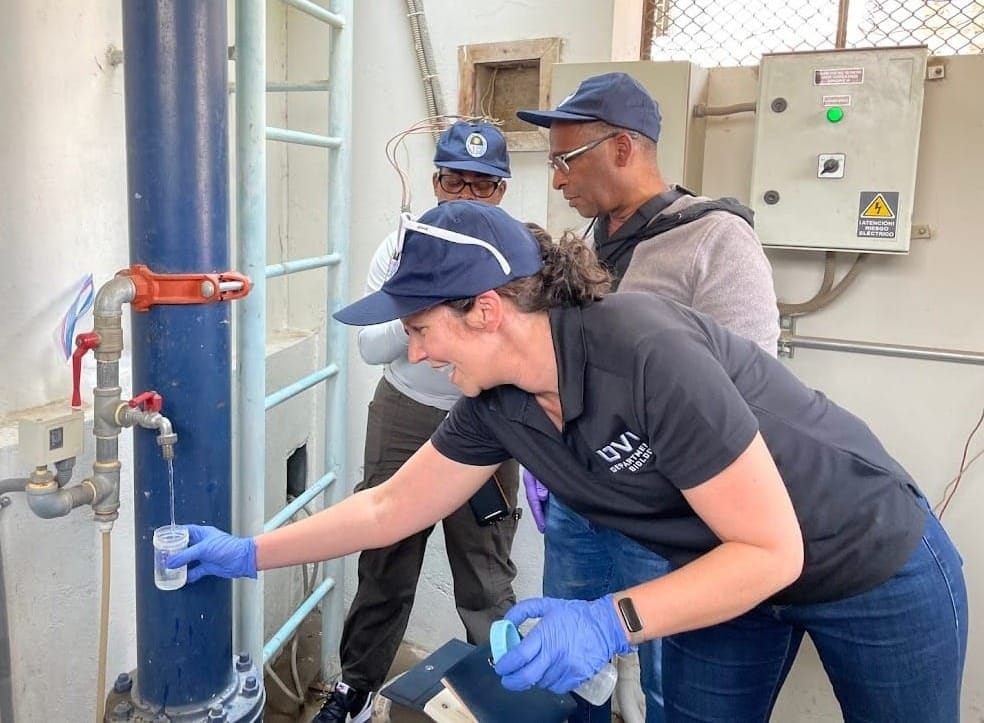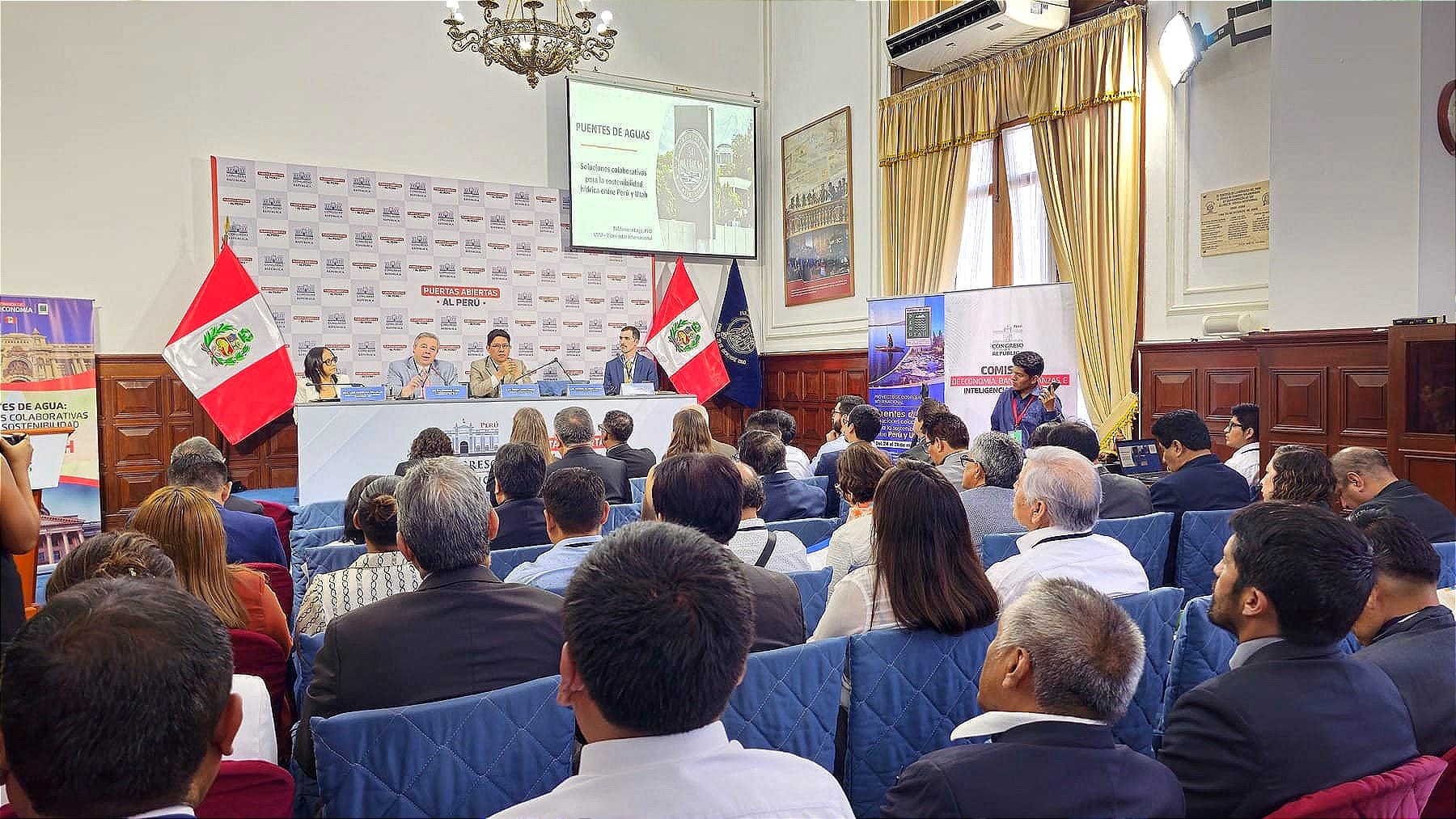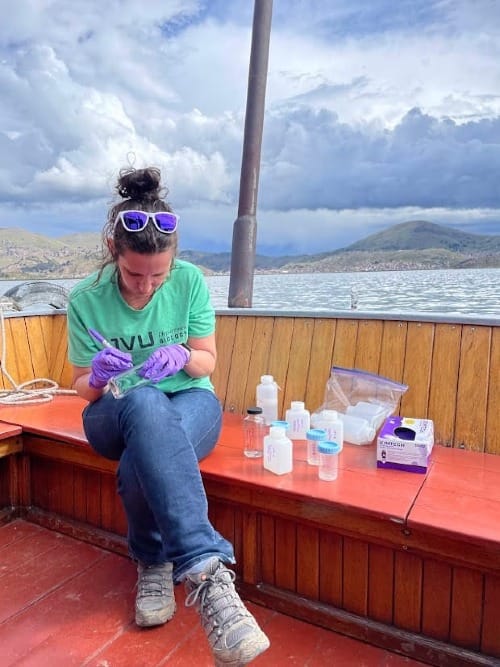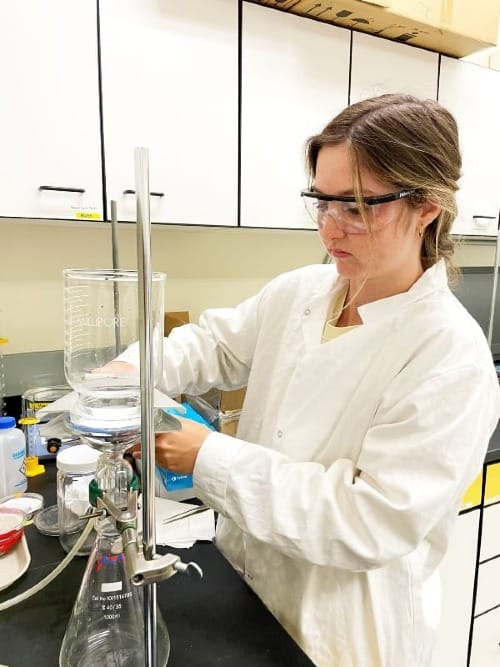

Orem, Utah - August 20, 2025
Utah Valley University researchers are applying their expertise in water testing and contamination control from Utah Lake to Lake Titicaca in Peru — and their work could have global implications for clean water technology and sustainable development.
Last spring, an interdisciplinary team of UVU scientists and students traveled to Peru to investigate water quality in urban and rural communities. Their focus: testing for microplastics, heavy metals, arsenic, and microbial contamination in municipal systems and freshwater sources.
The findings were stark. Even after sterilization, water used for cooking, cleaning, and drinking remained dangerously contaminated. In some schools outside Lima, administrators report that more than half of children suffer from recurring digestive illness linked to polluted water.
“Clean water would change the entire dynamic of these communities,” said Dr. Baldomero Lago, UVU’s chief international officer and head of the university’s newly awarded UNESCO Chair. “We’re gathering the data that local leaders can use to drive change.”

From Research to Real-World Solutions
The project goes beyond academic study. Faculty are developing scalable testing protocols, training local institutions, and exploring remediation strategies like algae harvesting in Lake Titicaca. Many Peruvian universities already own advanced water testing equipment — often donated by mining companies — but lack training to use it effectively.
“Equipment without expertise is useless,” said Lago. “That’s where our team comes in.”

This approach has clear potential applications back home. Utah faces its own water challenges, from algal blooms in Utah Lake to contamination risks tied to mining and industrial activity. By piloting methods in Peru, UVU researchers are testing models that could scale globally — and potentially form the basis of new water tech startups or policy innovations.
Engaged Learning Meets Global Impact
The initiative also puts UVU students at the center of field research. More than 120 water samples collected in Peru are now being analyzed in Utah labs, giving students hands-on experience in microbiology, chemistry, and environmental testing.
“This is engaged learning at its best,” said Lago. “Students aren’t just reading about problems in a textbook — they’re helping solve them.”
What Comes Next
UVU faculty and Peruvian partners plan to present findings to the Peruvian Congress later this year. While policy change is the immediate goal, the long-term opportunity lies in developing scalable solutions for water safety — and Utah is well positioned to play a role.
With its UNESCO Chair designation, UVU joins an international network aligned with the UN’s 2030 Sustainable Development Goals, specifically Goal Six: clean water and sanitation. That global platform could connect Utah researchers with NGOs, investors, and entrepreneurs interested in scaling clean-water innovations.
“This is more than a study,” said Lago. “It’s a chance to prove that Utah science can drive global change.”


